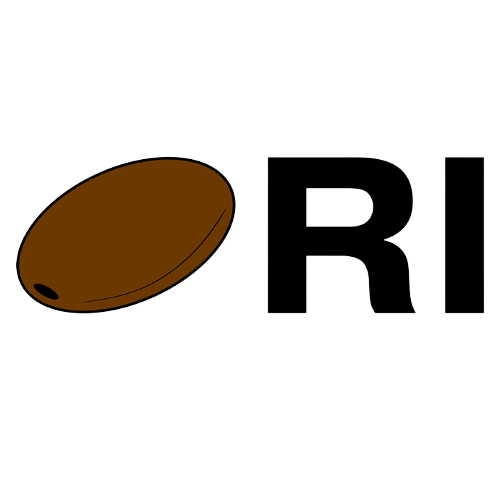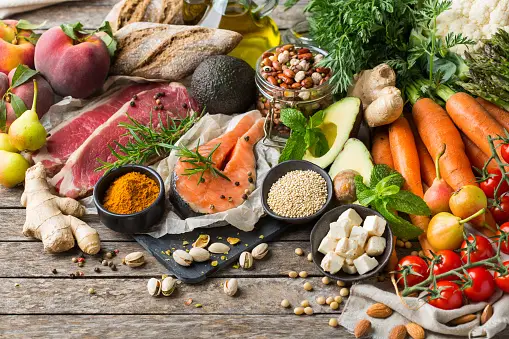A Simple Guide to Starting a Natural Food Diet for Improved Health
I. Understanding Natural Foods
A. Definition of Natural Foods
Natural foods refer to whole, minimally processed ingredients that are free from artificial additives, preservatives, or colors. They include fruits, vegetables, grains, nuts, seeds, and products that have not been altered by industrial processes.
- Difference Between Natural and Processed Foods: Natural foods often retain their original, nutrient-rich state, while processed foods typically undergo significant alterations, which can strip them of their nutritional value. For instance, a fresh apple is a natural food, while apple juice—especially if it’s from concentrate and includes added sugars—falls into the processed category.
- Common Examples of Natural Foods:
- Fresh fruits and vegetables (e.g., carrots, apples, spinach)
- Whole grains (e.g., brown rice, oats, quinoa)
- Nuts and seeds (e.g., almonds, chia seeds)
- Animal products from naturally raised or grass-fed sources (e.g., eggs, chicken, beef)
B. Benefits of Natural Foods
Adopting a diet rich in natural foods can significantly enhance your health.
- Nutritional Advantages: Natural foods are typically higher in essential nutrients, vitamins, and minerals. For example, a baked sweet potato is more fiber-rich and has lower glycemic levels compared to its processed counterpart, sweet potato fries.
- Impact on Overall Health and Well-being: Regular consumption of natural foods can help reduce the risk of chronic diseases like obesity, diabetes, and heart disease. You’ll likely feel more energized and have improved digestion.
- Environmental Benefits: Choosing natural foods often supports sustainable farming practices. By opting for local produce, you can reduce your carbon footprint while helping local farmers thrive.
C. Myths Surrounding Natural Foods
Plenty of misconceptions surround the term “natural,” and it’s essential to navigate through them wisely.
- Common Misconceptions: One common myth is that all natural foods must be organic, which isn’t necessarily true. While organic foods are grown without synthetic pesticides, many natural foods are not labeled organic but still come from wholesome sources.
- Distinguishing Between Food Marketing and Reality: Marketing can often blur the lines. Terms like “all-natural” might not mean what you think it does. Always read the ingredient list to find out what you’re really consuming.
- The Role of Food Labels in Understanding Natural Foods: Food labels can be informative, but they can also be misleading. Look for terms like “whole food,” “raw,” or “unprocessed” to understand what you’re purchasing better.
II. Preparing for a Natural Food Diet using a Simple Nigerian Example
A. Assessing Your Current Diet
To start your journey toward a natural food diet, take a close look at what you currently consume.
- Evaluating What You Currently Eat: Keep a food diary for a week to track your meals. This initial step helps you identify which foods are natural and which are processed.
- Identifying Processed Foods to Reduce or Eliminate: Consider quantitative changes; you might find that you consume too many packaged snacks or sugary drinks. Gradually replace these with fresh fruits or homemade snacks.
- Understanding Your Dietary Needs and Preferences: Everyone’s body is different. Think about what foods you enjoy and fits your health goals—this makes sticking to your diet much easier!
B. Setting Realistic Goals
Goal setting is essential for lasting changes.
- Short-term vs. Long-term Goals for Dietary Change: Begin with small, achievable goals, such as “I will eat one fruit daily.” Long-term goals could be, “I will replace every processed snack with a natural alternative within six months.”
- Creating Manageable Steps for Transitioning: Change doesn’t have to be drastic. Perhaps switch to whole grains like brown rice instead of white rice, and gradually introduce more natural ingredients.
- Importance of Being Patient and Flexible: The journey is a marathon, not a sprint. Be prepared for setbacks and adjust goals as needed.
C. Planning Your Grocery Lists
Planning can prevent last-minute unhealthy food choices.
- Categorizing Natural Foods for Easy Shopping: Divide your grocery list into sections such as fruits, vegetables, grains, and proteins. This organization makes shopping a breeze.
- Finding Reputable Sources for Organic and Natural Items: Look for local farmers’ markets or organic grocery stores in your area. Building relationships with farmers can also help you learn about seasonal natural foods.
- Budgeting for a Natural Food Diet: It’s feasible to eat healthier without breaking the bank. Plan meals based on seasonal produce, and don’t shy away from bulk buying grains and legumes.
Introducing ZiV Natural Dates Syrup by ORI Foods Global
As you embark on your journey to a natural food diet, incorporating natural sweeteners like ZiV Natural Dates Syrup by ORI Foods Global can be an excellent addition. Made from 100% natural dates, this syrup is free from artificial additives and preservatives, making it a wholesome alternative to refined sugars.
Benefits of ZiV Natural Dates Syrup:
- Nutrient-rich: Packed with vitamins and minerals, it provides a natural energy boost.
- Low Glycemic Index: Helps maintain stable blood sugar levels.
- Versatile: Can be used in baking, cooking, or as a sweetener for beverages.
By choosing ZiV Natural Dates Syrup, you not only enhance the flavour of your dishes but also support a healthier and more natural lifestyle.oosing ZiV Natural Dates Syrup, you not only enhance the flavor of your dishes but also support a healthier and more natural lifestyle. Click here to order
Conclusion
Transitioning to a natural food diet brings a multitude of benefits, from improved health to supporting sustainable practices. With a bit of planning and patience, you can embrace a healthier lifestyle that nourishes both your body and the planet.
“Take the first step towards making a positive change—your health will thank you for it!”
FAQs
What is the difference between organic and natural foods?
Organic foods are grown without synthetic fertilizers or pesticides. Natural foods are typically minimally processed and free from artificial ingredients. The terms “natural” and “organic” are often used interchangeably due to the absence of artificial modifications in these foods. However, organic foods go beyond merely being natural. Regulatory bodies emphasize the methods of food production as well. Organic farming practices integrate cultural, biological, and mechanical techniques to conserve biodiversity and promote ecological balance. More details can be found on the Environmental Working Group (EWG) website.
How quickly can I expect to see health benefits from a natural food diet?
Many people notice improvements in energy levels and mood within a few weeks, while longer-term benefits like weight loss or reduced cholesterol can take months.
Can a natural food diet be affordable for everyone?
Yes! With careful planning, focusing on whole ingredients, and shopping seasonally, a natural diet can be budget-friendly.
Are there any risks or drawbacks to consider?
Some may find it challenging to give up processed snacks or foods they enjoy. It’s essential to find natural alternatives that satisfy your cravings.
How do I find support for maintaining a natural food diet?
Consider joining local groups, online communities, or social media forums where you can share tips, recipes, and support with others on a similar journey.
Is Dates a Natural Food?
Yes, dates are a natural food! They are a sweet treat packed with nutrients and can make a great alternative to refined sugars.

